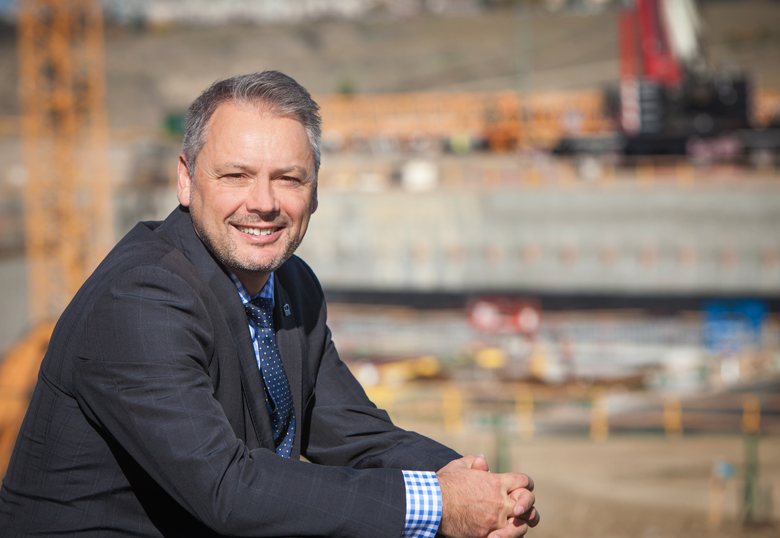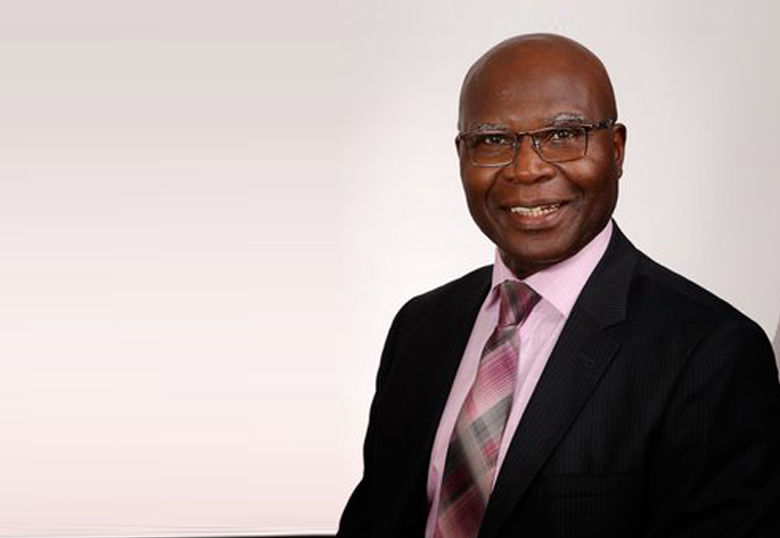A 50th anniversary calls for some reflection and the University of Lethbridge, set on traditional Blackfoot territory, has much to be proud of.
“It’s amazing to see what has been accomplished in the last 50 years,” said U of L President and Vice-Chancellor, Dr. Mike Mahon, at the annual Fiat Lux address.
The University has gone from consisting of one person—acting president Dr. Russell Leskiw (LLD ’93)—on Jan. 1, 1967 to a bustling comprehensive and research-focused post-secondary institution with more than 8,500 students and more than 40,000 alumni who are making their mark in the world.
However, 50 years in the life of an institution represents adolescence and Mahon urged the university community to cast its gaze to the future.
“We need to discuss who and what we want to be in our adulthood,” he said.
Just as Dr. Sam Smith (LLD ’90), the first U of L president, didn’t impose his views on what the fledgling U of L should hold as its philosophy and values, Mahon invited everyone to engage in discussion about what the U of L’s next 50 years might look like.
Leading the way, Drs. Erasmus Okine, vice-president research, and Andy Hakin, vice-president academic and provost, proposed five broad topic areas to help focus those discussions: student environment, academic programming, research culture, connection to community and facilities development.
“Notwithstanding the economics of current times, it’s time to think about what the future holds,” said Hakin. “We feel that there is a sense of growing momentum within the University—we are hitting our stride.”

“I have been most impressed by the collective effort to begin the conversations about how to achieve the vision where the U of L will be renowned for excellence in teaching, research and service,” said Okine. “We should all be willing to engage in this conversation. How do we produce accomplishments that transcend individual faculties and orient us as a Destination University?”
Regarding student environment, conversations could centre on what it means to be a university focused on the student experience. How can the U of L produce the best possible environment for student growth?
Building the student experience is paramount, said Hakin, and it can start at a science camp or any one of the many activities that bring people to campus. Each and every interaction can help build a positive student environment. The U of L is also a global institution, with students from more than 80 countries and U of L students furthering their studies at institutions in all corners of the world.
Hakin went on to say the best way to retain students is to give them learning experiences that involve and engage them in their academic programs. With liberal education as a foundational value of academic programming, the U of L community also needs to ponder possible future directions for professional programming.
With respect to research culture, Okine affirmed an unwavering commitment to liberal education and preserving the breadth of scholarship that distinguishes the U of L academic community and confirms the U of L identity in the Albertan and Canadian landscapes.

Preparing the next generation will mean providing students at all levels with high quality research experiences through enhancing community outreach, industry engagement and knowledge mobilization.
The U of L was built by community and the future will further build on the strong connections established over the last 50 years. The ties to community include the Coutts Centre for Western Canadian Heritage in Nanton, the Centre for Oral History and Tradition, the Pronghorns, sport and recreation services, relationships with Indigenous communities, health and wellness initiatives and the many connections created through our Faculty of Fine Arts. In line with the recommendations from the Truth and Reconciliation Commission, the U of L will continue to strengthen its relationships with Indigenous communities. U of L research expertise positions it to offer innovative services and programs in physical and mental health, education, music, drama, art and science.
The area of facilities development brings many exciting possibilities beyond the completion of the first phase of the Destination Project. Waiting in the wings is Phase II, the redevelopment of University Hall. Okine envisions establishing a dedicated place to support social science and humanities research as well as supporting creativity and research in the Fine Arts to create a community brought together through new collaborations. More residence spaces will further help to build the campus community. Hakin mused about additional tools like AGILITY or having a one-stop shop for all student services.
“Our people, our creative explorers, are our strongest resource,” said Hakin. “Where do we go from here? We need your vision for our future.”
Hakin and Okine welcome all ideas, comments and suggestions and they encourage members of the University community to send an email to provost@uleth.ca.
